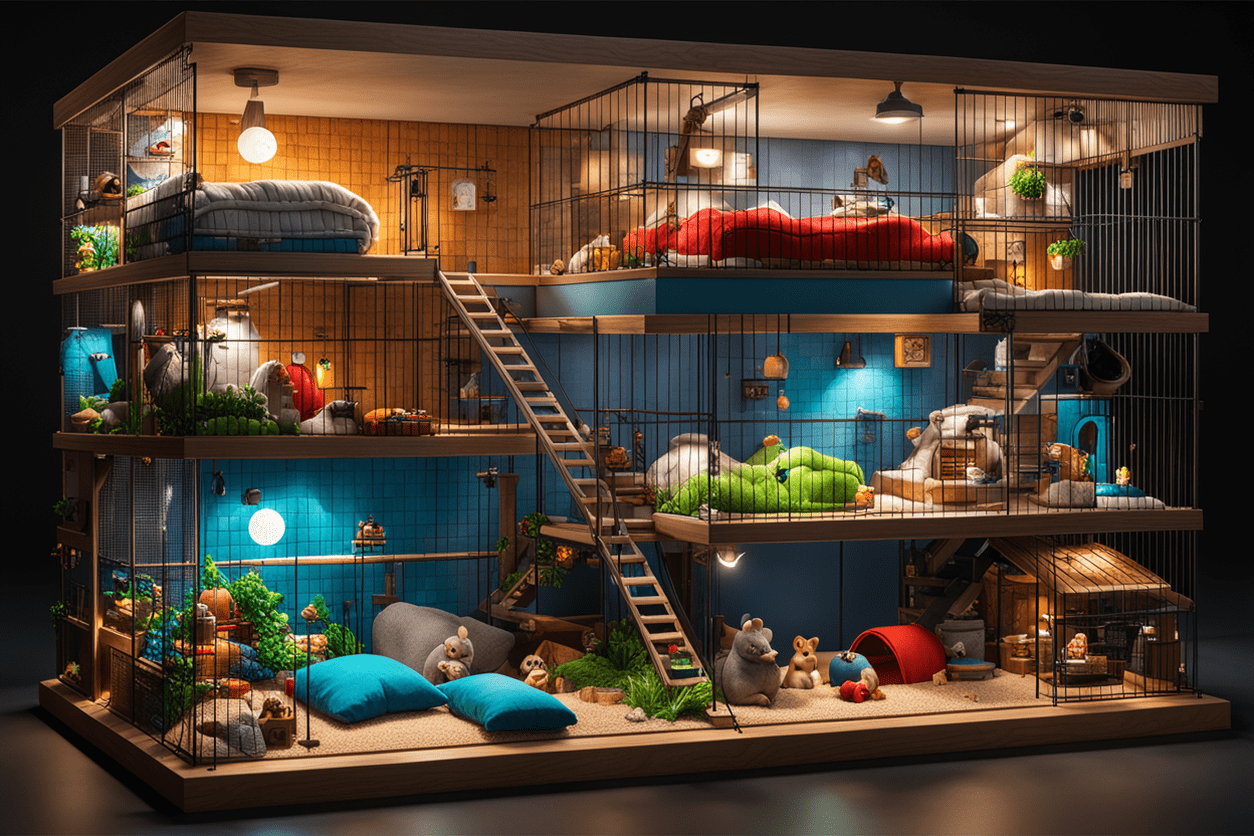Introduction
Adopting pet mice can be a thrilling adventure! They’re small, playful, and full of personality. However, their tiny size means they require special care. Creating an ideal environment for your mice isn’t as simple as it might seem. Let’s delve into what it takes to turn your house into a cozy haven for your new furry friends.
Understanding Pet Mice Needs
Habitat Essentials
Mice need space to explore, play, and nest. Choose a cage that offers plenty of room. A minimum of 24x12x12 inches for a pair of mice is generally recommended. Wire cages with a solid bottom are ideal. Avoid aquariums as they don’t provide proper ventilation.
Proper Ventilation and Safety
Your mice’s habitat should always stay well-ventilated. Proper airflow prevents moisture build-up and reduces odors. Ensure that the enclosure is secure to prevent any escape attempts. The bar spacing should be small enough that even the tiniest mouse can’t wriggle out.
Bedding and Substrate
Opt for bedding that’s safe and cozy. Aspen shavings, shredded paper, and paper-based bedding work well. Avoid cedar and pine as they release harmful oils. Make the substrate deep enough for burrowing and tunneling – at least 2 inches.
Enriching the Environment
Toys and Activities
Mice are energetic and curious creatures. Provide a variety of toys and activities to keep them stimulated. Wheels, tunnels, ladders, and chew toys will keep your mice entertained. Rotate the toys regularly to engage their interest and prevent boredom.
Hiding Spots
Mice like to hide and feel secure. Include small houses, igloos, or even cardboard boxes in their habitat. This gives them a comfortable place to retreat and reduces stress.
Climbing Opportunities
Offering climbing structures like ropes, branches, or bridges helps satisfy their natural urge to climb and explore. These features can also help maintain their physical health and agility.
Nutrition and Feeding
Balanced Diet
A balanced diet is crucial for a mouse’s health. Feed them high-quality commercial mouse pellets to ensure they get the necessary nutrients. Supplement with fresh vegetables, fruits, and occasional treats. Avoid sugary or fatty foods as they can lead to health issues.
Water Supply
Provide a constant supply of clean, fresh water. Use a water bottle with a sipper tube to keep the water uncontaminated. Check the bottle daily to ensure it’s functioning properly and hasn’t run dry.
Health and Hygiene
Cleaning the Cage
Cleanliness is paramount to your mice’s health. Spot clean the cage daily and do a full clean weekly. Remove soiled bedding and wipe down surfaces with a pet-safe cleaner. Remember to replace the bedding regularly to maintain a fresh environment.
Watch for Signs of Illness
Keep an eye on your mice’s health by observing their behavior and appearance regularly. Look for signs of illness such as lethargy, changes in eating habits, or unusual lumps. Seek veterinary advice if you notice anything concerning.
Interacting with Your Mice
Building Trust
Mice are naturally timid but can become friendly with patience. Start by talking softly to them, and then gradually let them get used to your hand in their cage. Offer treats and allow them to climb onto your hand at their own pace.
Handling Tips
Handle your mice gently to avoid causing them stress. Scoop them up with both hands, supporting their weight. Avoid grabbing them by the tail as it can cause injury or distress.
Playtime Outside the Cage
Supervised playtime outside the cage can be a great way for your mice to explore and bond with you. Create a secure, enclosed area free from hazards for them to roam.
Conclusion
Providing a comfortable, enriching home for your pet mice doesn’t have to be rocket science, but it does require a bit of thought and care. With a well-thought-out habitat, a balanced diet, and regular interaction, your pet mice will thrive. Remember, a happy mouse is a healthy mouse!
